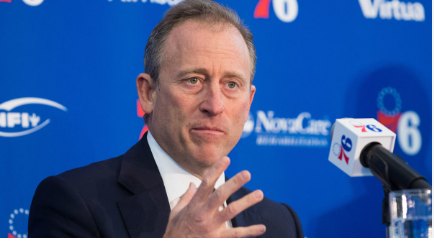The NFL, America’s premier sports league, dominates the nation’s television sporting market every Sunday, as well as prime slots on Monday and Thursday nights. Its unparalleled popularity cements it as the most significant sports league in the U.S., generating billions of dollars annually.
Comprising 32 franchises, each team operates as an independent business under the NFL umbrella, contributing to the league’s overall profitability. Among these franchises is the Washington Commanders, a team currently under the ownership of Josh Harris, who also owns the Philadelphia 76ers.
Recently, the NFL suffered a significant legal setback in an antitrust lawsuit brought by customers who purchased the NFL Sunday Ticket through DirecTV from 2011 to 2022. The lawsuit centered on allegations of overpricing due to the lack of competitive alternatives for accessing NFL games on television, as NFL Sunday Ticket remained the primary source for fans to view out-of-market games.
The jury ruled in favor of the plaintiffs, awarding a staggering $4.7 billion in damages to individual customers and an additional $96 million to commercial entities. Under federal antitrust laws, these damages could potentially be tripled, escalating the NFL’s liability to a daunting $14.39 billion. ESPN detailed the lawsuit’s implications, noting that it affects 2.4 million residential subscribers and 48,000 businesses across the United States.
“The jury awarded $4.7 billion in damages to the residential class and $96 million in damages to the commercial class. Since damages can be tripled under federal antitrust laws, the NFL could end up being liable for $14.39 billion. The lawsuit covered 2.4 million residential subscribers and 48,000 businesses in the United States who paid for the package of out-of-market games from the 2011 through 2022 seasons on DirecTV,” ESPN reported.
This financial burden translates to each of the 32 NFL owners facing a potential $450 million hit. For newly minted Commanders owner Josh Harris, this represents a considerable expense, despite his substantial net worth, estimated to be just under $9 billion. While $450 million is a significant sum, Harris’s financial standing suggests he can manage the payment without jeopardizing his holdings.
The antitrust lawsuit and its resultant financial penalties highlight the broader issue of monopolistic practices in sports broadcasting. The NFL’s exclusive partnership with DirecTV for Sunday Ticket significantly limited fans’ options, leading to inflated prices and a lack of competitive alternatives. This ruling may prompt the NFL to reconsider its broadcasting strategies to foster a more competitive and consumer-friendly market.
As the NFL grapples with the fallout from this lawsuit, the league and its franchises must navigate the financial repercussions while exploring more inclusive and competitive ways to distribute their content to fans. The outcome of this lawsuit serves as a cautionary tale for monopolistic practices and underscores the need for greater competition in sports broadcasting.

